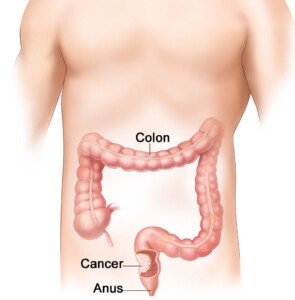Have you noticed that sometimes there’s a groove or long indent on one side of your poops?
Could this mean anything significant such as colon cancer?
We often hear how a “change in stool caliber” is something to pay mind to, as it can signal the presence of colon cancer.
We are also told to be very concerned if we see what appears to be blood or a black, tar-like substance in our bowel movements.
Two more worrisome observations are when stools come out grey or chalky in color, or come out in the shape of ribbons or pencil thin.
Groove on One Side of Your Poop: Could this Mean Cancer?
“An isolated stool or a few bowel movements with a groove within the stool is not of any significance — and may simply be due to something in the diet that day, or some nonspecific change in the digestion that day,” says Santosh Sanagapalli, MD, a consultant gastroenterologist, endoscopist and specialist in esophageal disorders.
“It does not require any further thought or concern.
“However, if a groove in the stool is a persistent finding, then it may warrant further assessment.
“Logically, a groove in the stool suggests that there is something very low down in the GI tract (within the anus or rectum) that is ‘indenting’ the soft stool.
“This could include things such as polyps or even tumors.”
What You Should Do
“A simple first step that patients could try at home is adding a regular soluble fiber supplement (e.g., psyllium husk),” says Dr. Sanagapalli.
“The fiber supplement will bulk the stool, and if this results in disappearance of the groove, then it is of no concern.
“If it persists, then the patient should consult their doctor who can perform a digital rectal examination to see if they can feel anything that may be causing the groove.
“Ultimately, a sigmoidoscopy or colonoscopy may be required to definitively examine the anus and rectum from the inside to ensure there is nothing concerning causing the grooved appearance.”
Of note: The specific descriptor of “groove or elongated indent in a stool” is never included in symptom lists for colon cancer.
Nevertheless, whenever something about your bowel movements begins worrying you, your next move should be to consult with a gastroenterologist — especially if you’re at least 45 and have never had a colonoscopy.
 Dr. Sanagapalli is a gastroenterologist and director of the Esophageal Disorders Center at St Vincent’s Hospital, Darlinghurst. He performs diagnostic and therapeutic endoscopic procedures, and enjoys providing comprehensive and holistic care to patients with a wide variety of disorders affecting the gastrointestinal tract.
Dr. Sanagapalli is a gastroenterologist and director of the Esophageal Disorders Center at St Vincent’s Hospital, Darlinghurst. He performs diagnostic and therapeutic endoscopic procedures, and enjoys providing comprehensive and holistic care to patients with a wide variety of disorders affecting the gastrointestinal tract.
 Lorra Garrick has been covering medical, fitness and cybersecurity topics for many years, having written thousands of articles for print magazines and websites, including as a ghostwriter. She’s also a former ACE-certified personal trainer.
Lorra Garrick has been covering medical, fitness and cybersecurity topics for many years, having written thousands of articles for print magazines and websites, including as a ghostwriter. She’s also a former ACE-certified personal trainer.
.










































